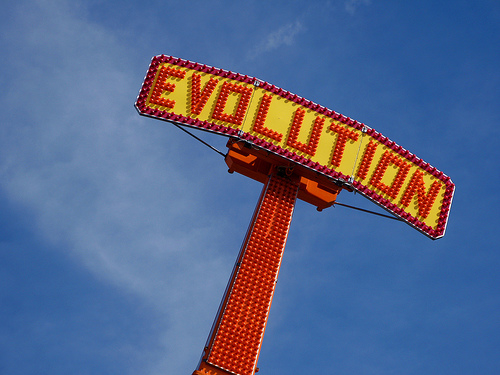There is something nice about having a distinctive writing style and reaching unusual conclusions: It makes it really hard for other people to cheat from your papers. As I was writing one about functionalists – no, I didn’t crib off of my earlier blog posts… much – it occurred to me that it was all due to Darwin.
 Mead looks at Darwin – and modern evolutionary thought – as being a huge influence on Hegel. From Hegel you get Marx and then conflict theory – often painted as the diametric opposite from functionalism. Yet the way that humanity viewed evolution – and itself – is preserved and reflected in the functionalist tradition.
Mead looks at Darwin – and modern evolutionary thought – as being a huge influence on Hegel. From Hegel you get Marx and then conflict theory – often painted as the diametric opposite from functionalism. Yet the way that humanity viewed evolution – and itself – is preserved and reflected in the functionalist tradition.
Comte and Durkheim viewed the societal organism as imperfect – and looked for ways to improve it. This optimism and desire to be better reflects the 19th century concept of evolution as improvement in a species.
In the next century, Talcott Parsons changed that somewhat, arguing that society must be preserved, not improved upon. This stress on preservation reflects a common viewpoint of the early and mid 20th century: That evolution was done. We were as good as it was going to get, and any change would inherently be bad and degrade things. It’s akin to the eugenics movement that took place at that time as well. Evolutionary concepts were very linear at that time, from “lesser” forms to “greater” forms.
Merton – along with later functionalists – have taken a much more agnostic view of our society’s development. Sure, there’s things we need – but that doesn’t mean the current way is the best way. It doesn’t mean everything that exists is worthwhile or good, either – just not bad in the balance. It also doesn’t imply that we’re the end-state of societal development either. That’s more akin to the “bushy” view of evolution that you see promoted by late 20th century thinkers like Stephen Jay Gould.
It’s interesting, seeing the concepts and thoughts of one branch of science reflected in the sensibilities of another. It also gives some real credence to the thought that we are inextricably rooted in our point and place in time.
